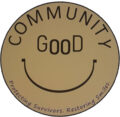Wanakipa Safe House
The Hewa Community in the northern part of Hela Province is severely impacted by Sorcery Accusations and Related Violence (SARV). A deep tradition of sorcery belief is present in this part of the province. However, these beliefs have intersected with chronic underdevelopment and neglect and SARV is now an urgent crisis for this part of Hela Province. In the context of severe poverty and lack of services, almost any phenomena can get blamed on sorcery. For example, the old cane bridges that service the area are in need of constant repair. These bridges sometimes collapse and take the lives of people who fall into the fast flowing rivers. In these cases, someone is likely to be accused of sorcery and then pursued, tortured, and killed.
Rates of infant and child mortality are extremely high and the death of a baby or the mother will often be blamed on sorcery. There is only one Health Centre in the area and it can take more than 24 hours for many communities to access the health centre. There are cases where pregnant women have given birth alone along bush tracks and when a baby dies an innocent person is accused of sorcery. There are cases of women committing suicide by hanging or jumping into rivers for fear of being tortured.
Some members of the Hewa community have taken it upon themselves to construct a safe house for those accused of sorcery, which is located near the village of Wanakipa where there is an airstrip and where the only health centre is located. This initiative was started by a group of young people who have lost their mothers and other family members to accusations of sorcery. Rather than take victims away from the community and into other parts of the province, where they will join the ranks of the many thousands of internally displaced peoples in Hela, these peace workers are building a safe house compound on their own land under the leadership of the Community Good Inc. This has the benefit of keeping people close to their own homes, gardens, land and culture.
The Community Good has provided training in agriculture and coordinated assistance provided by the UNIOM and other individual donors. This community-led work is extremely sensitive and difficult and any assistance provided must be sensitive to the cultural environment that is specific to the area.

